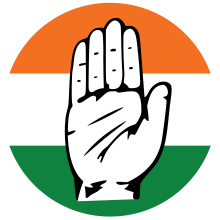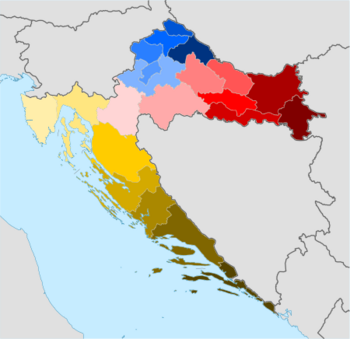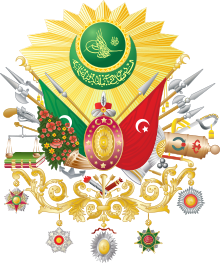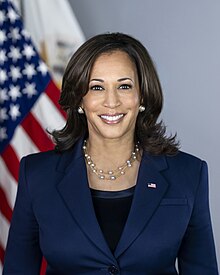Portal:Politics
| Main | Topics and categories | Tasks and projects |
The Politics portal
Politics (from Ancient Greek πολιτικά (politiká) 'affairs of the cities') is the set of activities that are associated with making decisions in groups, or other forms of power relations among individuals, such as the distribution of resources or status. The branch of social science that studies politics and government is referred to as political science.
It may be used positively in the context of a "political solution" which is compromising and non-violent, or descriptively as "the art or science of government", but also often carries a negative connotation. The concept has been defined in various ways, and different approaches have fundamentally differing views on whether it should be used extensively or in a limited way, empirically or normatively, and on whether conflict or co-operation is more essential to it.
A variety of methods are deployed in politics, which include promoting one's own political views among people, negotiation with other political subjects, making laws, and exercising internal and external force, including warfare against adversaries. Politics is exercised on a wide range of social levels, from clans and tribes of traditional societies, through modern local governments, companies and institutions up to sovereign states, to the international level.
In modern nation states, people often form political parties to represent their ideas. Members of a party often agree to take the same position on many issues and agree to support the same changes to law and the same leaders. An election is usually a competition between different parties.
A political system is a framework which defines acceptable political methods within a society. The history of political thought can be traced back to early antiquity, with seminal works such as Plato's Republic, Aristotle's Politics, Confucius's political manuscripts and Chanakya's Arthashastra. (Full article...)
Selected article
The Local Government Commission for England was the body responsible for reviewing the structure of local government in England from 1992 to 2002. It was established under the Local Government Act 1992 replacing the Local Government Boundary Commission for England. The Commission could be ordered by the Secretary of State to undertake 'structural reviews' in specified areas and recommend the creation of unitary authorities in the two-tier shire counties of England. The Commission, chaired by John Banham, conducted a review of all the non-metropolitan counties of England from 1993 to 1994, making various recommendations on their future. After much political debate and several legal challenges, the Commission's proposals resulted in the abolition of Berkshire county council and the counties of Avon, Cleveland, Hereford and Worcester and Humberside. Combined with a second wave of reviews in 1995, under the chairmanship of David Cooksey, the Commission's proposals led to the creation of unitary authorities covering many urban areas of England. It was replaced by the Boundary Committee for England in 2002, which finished this review cycle in 2004.
Featured picture

Aletta Jacobs (1854–1929) was a Dutch physician and women's suffrage activist. Jacobs strove throughout her life to change laws that limited women's access to equality, starting in 1883 with an unsuccessful court challenge and eventually achieving success on 18 September 1919, with the signing of a suffrage bill into law. In addition to her suffrage work she led campaigns aimed at deregulating prostitution, improving women's working conditions, and promoting peace.
Selected quote
Selected biography
Grover Cleveland (1837–1908) was both the 22nd and 24th President of the United States. Cleveland is the only President to serve two non-consecutive terms (1885–1889 and 1893–1897) and therefore is the only individual to be counted twice in the numbering of the presidents. He was the winner of the popular vote for President three times—in 1884, 1888, and 1892—and was the only Democrat elected to the Presidency in the era of Republican political domination that lasted from 1860 to 1912. Cleveland's admirers praise him for his honesty, independence, integrity, and commitment to the principles of classical liberalism. As a leader of the Bourbon Democrats, he opposed imperialism, taxes, subsidies and inflationary policies, but as a reformer he also worked against corruption, patronage, and bossism. Critics complained that he had little imagination and seemed overwhelmed by the nation's economic disasters—depressions and strikes—in his second term. Even so, his reputation for honesty and good character survived the troubles of his second term.
Did you know (auto-generated) -

- ... that Peter Merseburger refused to host a 1974 edition of German political TV magazine Panorama after a report by Alice Schwarzer on an abortion was cancelled by authorities?
- ... that the Chinese government began compiling an official history of the Qing dynasty in 2002, but as of 2023 a protracted political review is forestalling its publication?
- ... that Satrio Sastrodiredjo and Moerachman, both former mayors of Surabaya, Indonesia, were held as political prisoners in the same prison after the 30 September Movement in 1965?
- ... that following the ban of its labour unions in 1934, the Romanian United Socialist Party would rely on its youth and women's wings for political action?
- ... that political philosophy professor Werner J. Dannhauser was the basis for a character in a Saul Bellow novel?
- ... that Presidential Ballots, 1836–1892 was reviewed by Richard P. McCormick, who wrote that it "should stimulate a host of studies in the little-explored field of American political behavior"?
More did you know...
- ...that the Communist League of America was formed after some members of the Communist Party USA were expelled for Trotskyism?
- ...that, at a congress in May 1921, all Socialist Party of Romania delegates who supported Bolshevik guidelines were arrested 24 hours after a vote on affiliation to the Comintern?
- ...that Ngo Dinh Diem became president of South Vietnam after a fraudulent 1955 election run by his brother Ngo Dinh Nhu, polling 133% of registered voters in Saigon?
- ...that the Brothers Grimm were amongst the Göttingen Seven, university teachers who protested changes to the constitution of the Kingdom of Hanover in 1837?
- ...that the Brown Dog affair, an Edwardian era vivisection controversy, led to massive riots?
- ...that the Proletarian Revolutionary Organisation of Nepal proposed a synthesis of Buddhism and Maoism in 1977?
In this month
- June 28, 2004 - Canadian federal elections occur; the Liberal party loses its absolute majority.
News and Current events
- August 11: 4 local government areas in New South Wales, Australia locked down after COVID-19 case
- August 11: Australia: AstraZeneca vaccine access expanded by Victorian government
- August 1: Australia: Victorian lockdown lifted
- July 29: Tunisia's president dismisses prime minister, suspends parliament
- July 25: Australia: Wikinews interviews Reg Kidd, mayor of the City of Orange, about COVID-19 lockdown and local government
- July 23: South Australia enters week-long lockdown to contain COVID-19 Delta variant spread
- July 21: Technological University Dublin senior lecturer Dr Lorcan Sirr speaks to Wikinews on housing market in Ireland
- July 21: Three rural councils in New South Wales, Australia enter 7-day lockdown
- July 21: Australia: Victoria lockdown extended by a week with 85 active cases recorded
- July 15: California governor signs new state budget, eligible Californians to get stimulus payments
Topics and categories
General images
Related portals
Associated Wikimedia
The following Wikimedia Foundation sister projects provide more on this subject:
-
Commons
Free media repository -
Wikibooks
Free textbooks and manuals -
Wikidata
Free knowledge base -
Wikinews
Free-content news -
Wikiquote
Collection of quotations -
Wikisource
Free-content library -
Wikiversity
Free learning tools -
Wiktionary
Dictionary and thesaurus
Sources
More portals
- Portals with triaged subpages from June 2018
- All portals with triaged subpages
- All portals
- Portals with no named maintainer
- Random portal component with 41–50 available subpages
- Random portal component with 16–20 available image subpages
- Automated article-slideshow portals with 101–200 articles in article list
- Random portal component with 11–15 available subpages
- Random portal component with over 50 available subpages
- Politics portals
- Politics portal
- Politics





























































